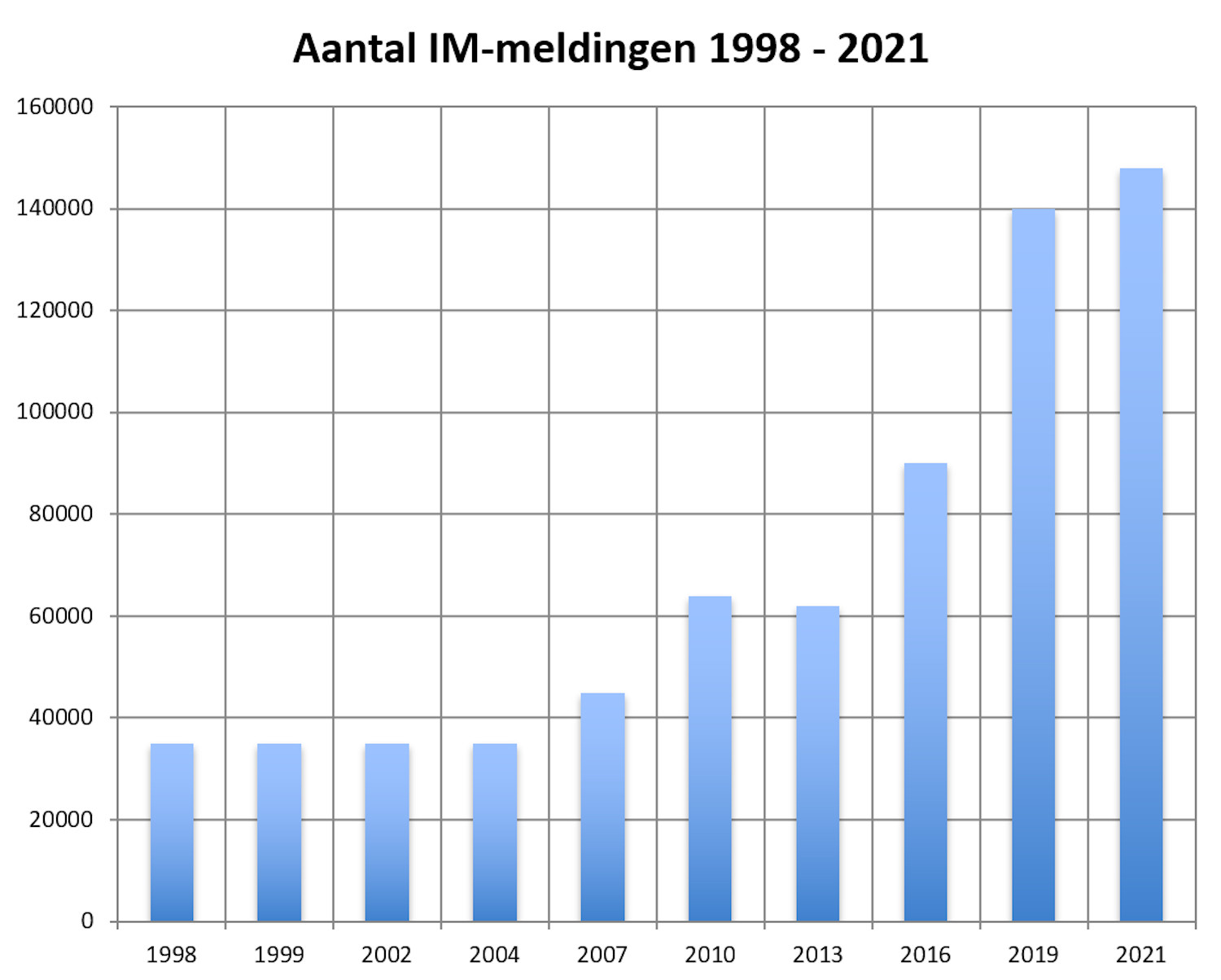And then there were 54
Monday 24 January 2022
The operations of Smits Kraan- en Sleepbedrijf in Haarlem were acquired by Bergnet on 1 December 2021. This meant that Bergnet, which has six facilities in and around Amsterdam, became the largest IM recovery operator in the country, with a market share of 15%. At the same time, the total number of IM recovery operators in the country fell to 54, one quarter of the number that was active prior to the liberalisation of the recovery market in 1999.
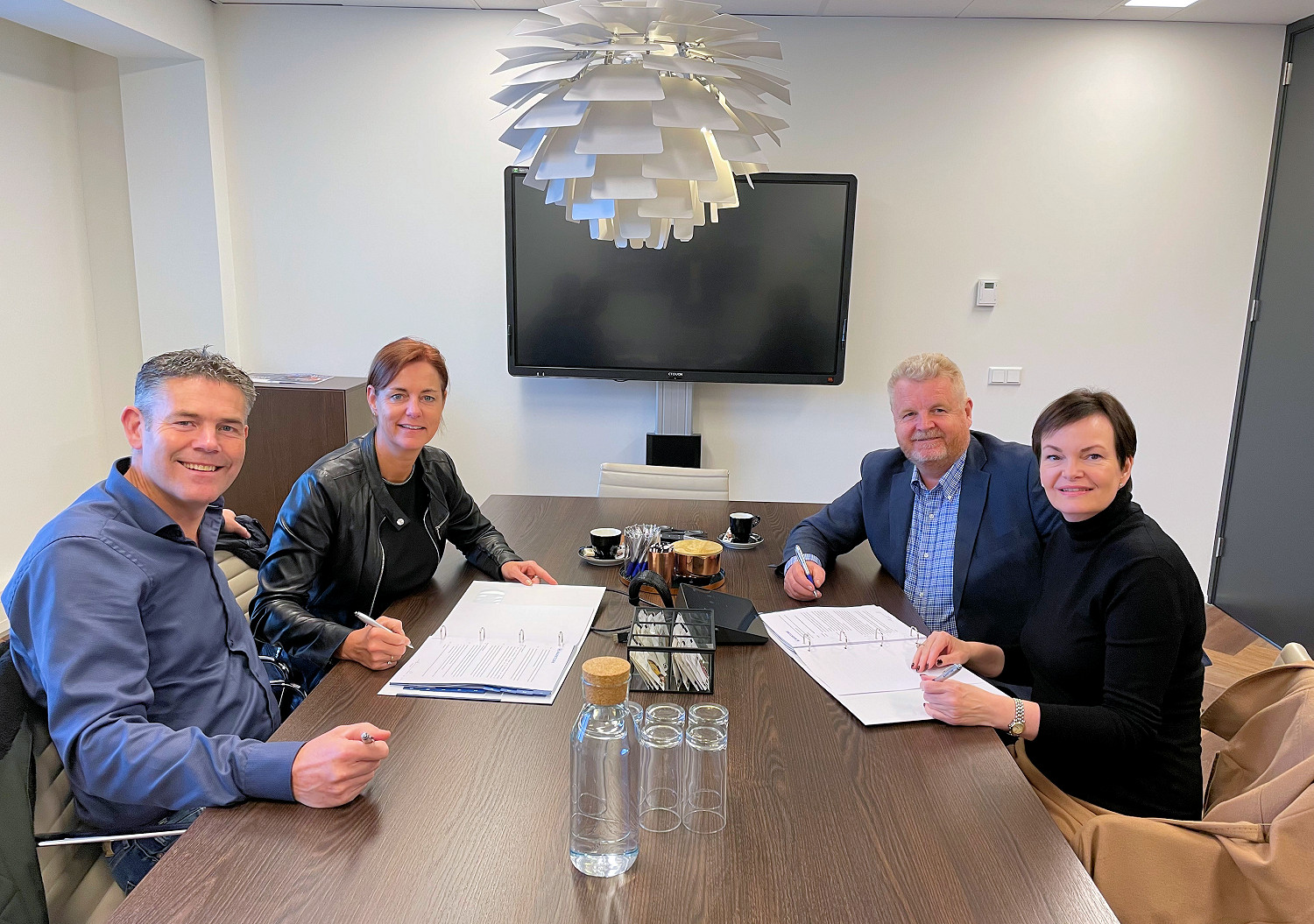
Sander and Nicole Vlaar of Bergnet (both left) seal the takeover of Smits Kraan- en Sleepbedrijf with Ron and Sandra Ottef
Up to 1999, each recovery company had its own district. Within that area, the company was responsible for all recovery operations arising for an indefinite period. The rates charged for such work were fixed at national level. This situation ensured a high degree of stability: each company was assured of a steady and sustainable stream of income, although there was hardly any scope for expansion. This changed with the first public tender procedure for recovery contracts in 1999. The security that existed before that time made way for a market in which each company could decide for itself which recovery districts it wanted to operate in.
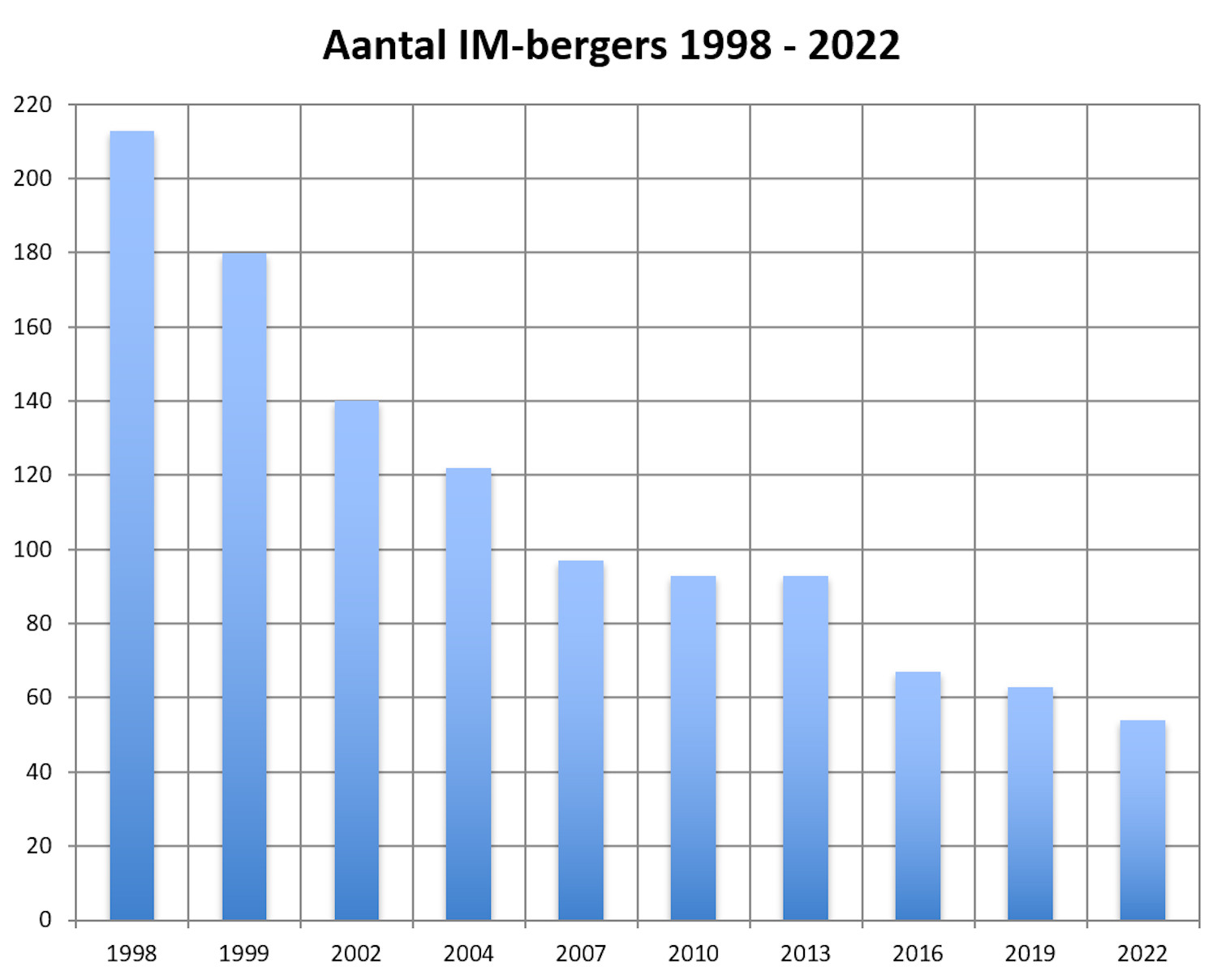
Up to 2004, Stichting IMN's agreements related to recovery operations on all roads. From that point onwards, solely on 'IM roads'. The table shows the companies that were active in districts which now contain IM roads (up to 2004); from that year all companies with a recovery agreement with Stichting IMN.
That opportunity was seized right from the start. Seven companies that were involved in the tender procedure in 1999 not only tendered for their 'own' district, but also for four or more other operations areas. In the years that followed, some companies had burgeoning ambitions. The downside of this freedom, of course, was the risk of losing out on work. Fierce competition broke out in large parts of the country, which led to a sharp fall in amounts charged.
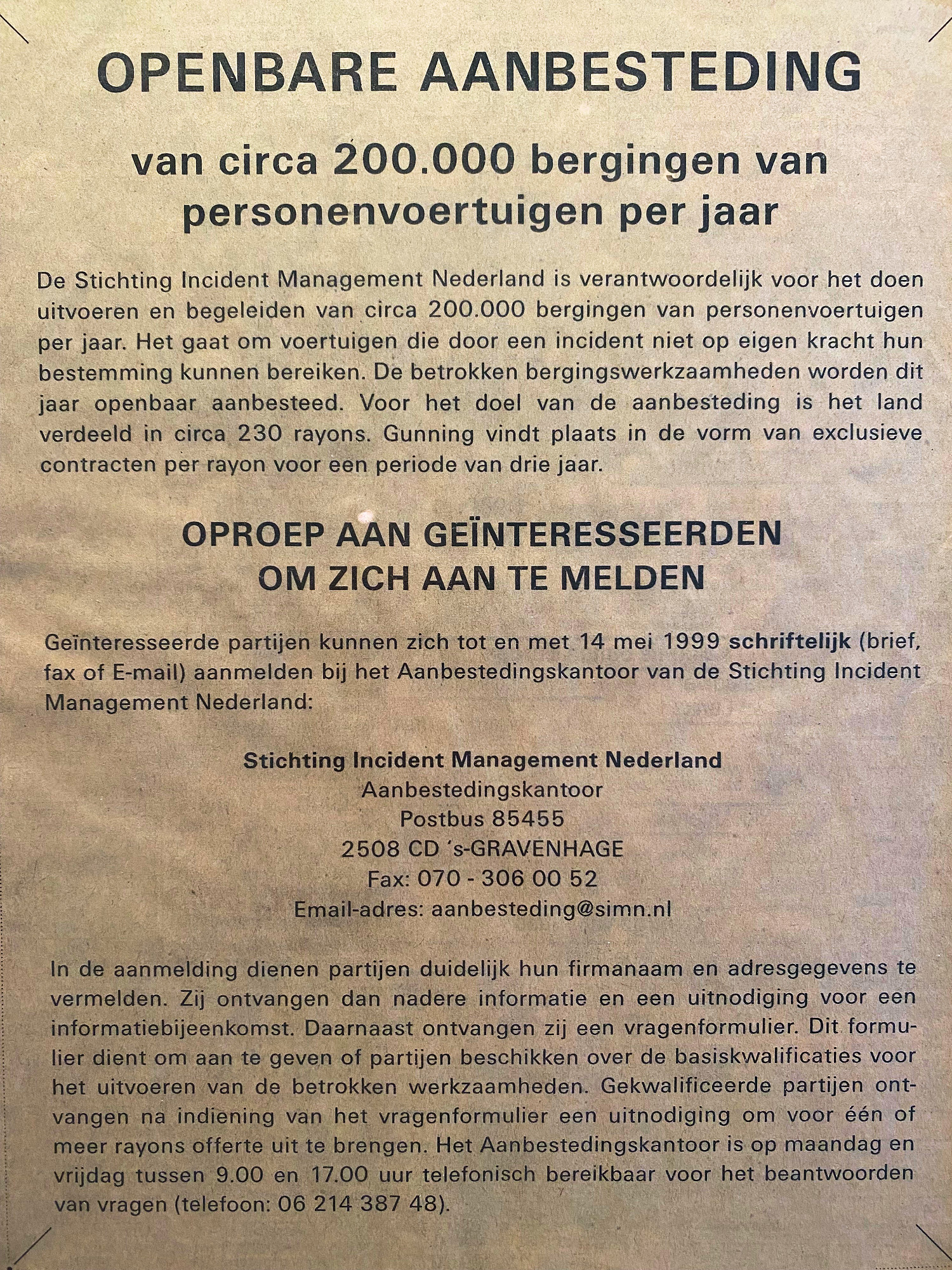
Call for participants in the first public tender procedure for recovery operations in De Telegraaf, 1999. As with that of 2002, this tender procedure related to all roads, not just IM roads.
The fluctuation in charges from 1998 onwards is plotted in the bar chart below. These are 'ball park' figures. In the first place, they are weighted averages of charges nationwide that differ from district to district. Further, the subject matter and scope of the recovery agreement, and also the structure of the recovery charges have repeatedly changed over the years. For instance, the requirements relating to response times and operating equipment have been tightened considerably. And yet, there is sufficient continuity to be able to say that charges in 2016 were more than 50% lower than the level in 1998, in real terms. There was no recovery in prices until 2019.
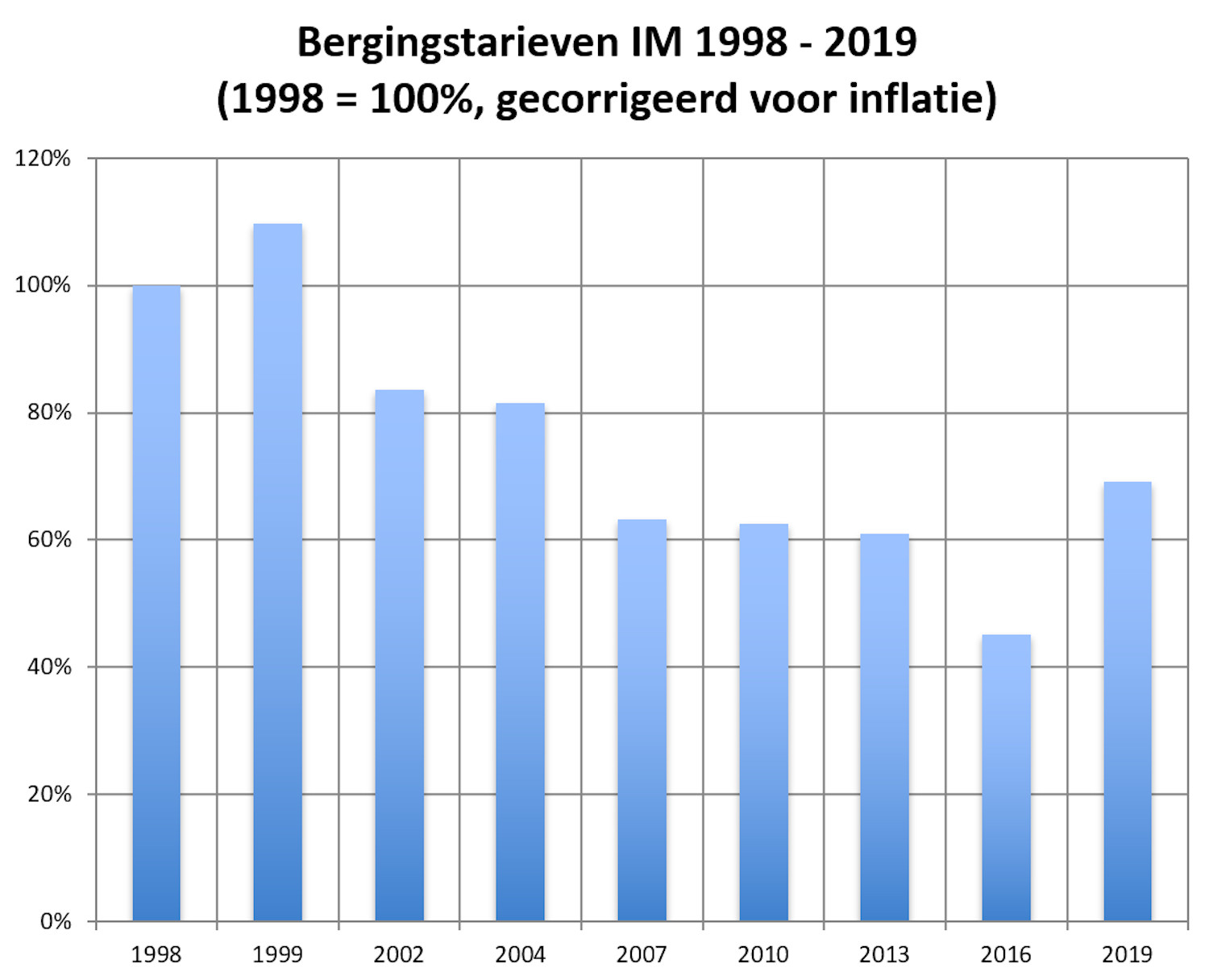
Other than that, the falls in prices went hand in hand with an enormous increase in the volume of work. Up to 2005, operations on IM roads were limited to vehicle recovery in the event of an accident. In most cases, such accidents were reported by the police to Stichting IMN, which then instructed the IM recovery operator. There were around 35,000 reports per year. In 2005, Rijkswaterstaat adopted a new policy of removing broken-down vehicles from the motorways. It was no longer deemed desirable to offer breakdown assistance on the hard shoulder and decisions were increasingly made to call out a recovery operator that could take the vehicle to a safe location. This type of report did not come from the police, but from Rijkswaterstaat or from the ANWB. The result was a quadrupling of the volume to 140,000 reports in 2019.
